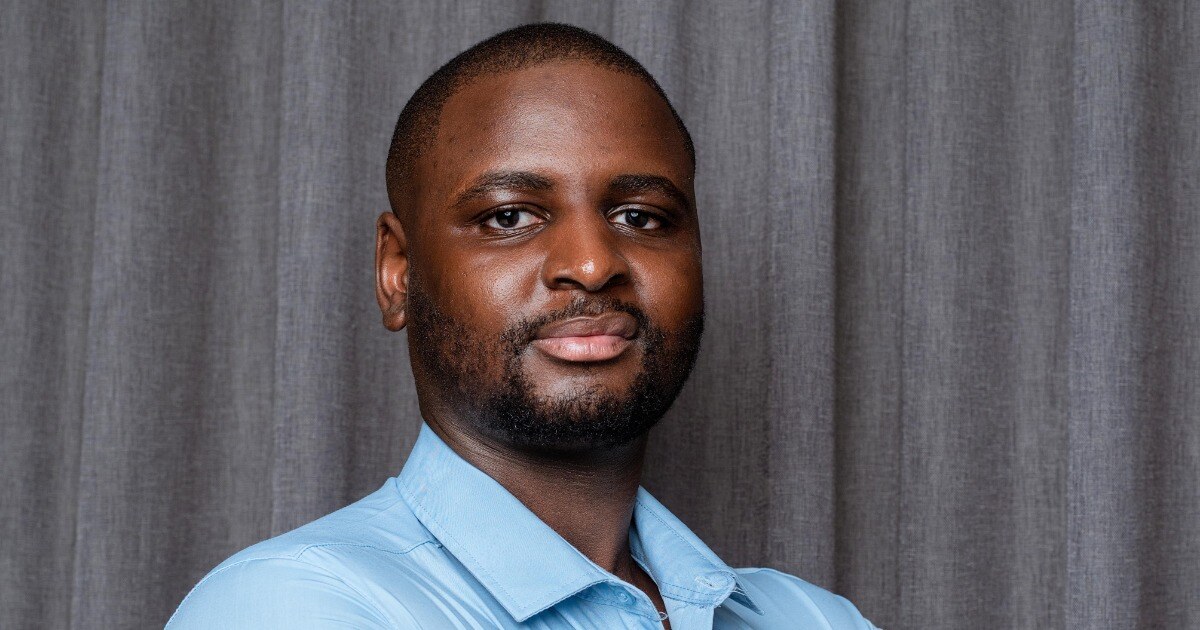Mvelo Hlophe, founder and CEO of Zaio: How digital nomads can bridge the skills gap

By Koketso Mamabolo
“Our generation is so used to getting things quickly that we sometimes forget that to build something of significant value, it will take time,” says Mvelo Hlophe, founder and CEO of Zaio, an online coding school whose graduates work for leading organisations such as Amazon, Wipro and FNB. “Zaio was born to solve the skills shortage in South Africa, and to get my fellow South Africans into employment. Combining this vision with technology was therefore the solution to deliver what we do at scale,” he tells Topco Media.
The new work permit regime announced by the Department of Home Affairs, which includes a digital nomad visa, will likely be a key driving force in addressing this skills shortage. “The immediate economic benefits that South Africa will gain due to the influx of digital nomads is revenue generation as these digital nomads spend on various services and stimulate job creation across sectors like hospitality, tourism, and technology,” explains Mvelo.
Here Mvelo shares his story and the inspiration behind Zaio, as well offering insights on what the digital nomad visa will mean for local coding talent, how we can address the skills gap and more.
What will the launch of the digital nomads visa mean for local talent?
The immediate economic benefits that South Africa will gain due to the influx of digital nomads is revenue generation as these digital nomads spend on various services and stimulate job creation across sectors like hospitality, tourism, and technology. This impact will extend to the local talent pool as the digital nomads bring diverse skill sets and global perspectives that local talent can leverage to solve local challenges. So too, will their entrepreneurial spirit within our communities act as catalysts for innovation, fostering a vibrant startup ecosystem that enhances South Africa’s reputation as a tech hub.
However, with these advantages also come challenges, especially regarding the potential displacement of our local coding talent. Digital nomads earn higher salaries and drive up living expenses in city centres like Cape Town and Johannesburg. This results in higher rents and food costs, pushing locals to move to the outskirts and spend hours in traffic to get to their place of work. Because of this decrease in quality of life, lucrative opportunities abroad or even just working remotely for an international company lure many skilled coders. This leads to a depletion of our pool of talented coders, as local businesses find it hard to match the salary packages offered by international rivals.
What can local companies do to retain local coders?
Local companies will need to step up and adapt their job offerings to compete with attractive international salary packages. Offering benefits, such as flexible work hours and a supportive company culture that can foster a sense of belonging that transcends financial incentives, will go a long way in retaining talent. South African companies should also look at attracting new talent by providing access to on-the-job training, free online learning and mentorship programmes.

How can we go about addressing the gap between what is taught in universities and what is needed in the working world?
There needs to be a closer relationship between employers and academic institutions. Employers need to continuously update academic institutions of the roles that are available, trends related to what skills they will be looking for in the near future and what skills talent needs to fill roles they are hiring for at any given time. Academic institutions need to then be agile enough to receive this important information and improve their offerings to their students. Establishing Think Tanks between the employers and academic institutions will also catalyse this information sharing process.
Please tell us about your background - how did you get to this point?
I was born on the South Coast of KZN. A small town where we would only see things happening during the holiday period as it was a place where many people from inland came to spend their holidays. I am the youngest of 4, raised by 2 teachers. My love for education and community building has been influenced by my parents and their commitment to seeing the children flourish in the communities that they served. Having received a scholarship to study at a local private school that I otherwise would never have been able to get access to, I soon realised the power of breaking down systemic barriers and how good quality education can change someone's life for the better. I subsequently went to study at the University of Cape Town. Initially, I was pursuing a Bachelor of Business Science, majoring in Finance and Accounting but at the height of Fees Must Fall my passion to create impact for others and our country grew. I switched to a BCom Politic, Philosophy and Economics as I believed that if I had a macro perspective of the world we live in, I would be better suited to bring about the change I wanted to see in the world. This informed my approach to entrepreneurship. I started seeking challenges that needed solutions. I tried two other businesses while studying; one in the safety technology industry and the other in education, more specifically K-12. When both businesses failed I naturally moved onto looking to solve arguably the most pressing issue we have in South Africa: unemployment. Given how I was raised, the clearest path to solving our unemployment issue in this country that I saw was education. This is why we started Zaio and why we continue to grow today.
You studied Politics, Philosophy, Economics - what inspired you to get involved in the computer science space? What inspired you to start Zaio?
I believe that those who practise continuous learning, will always be better off to seek and take advantage of opportunities when they are in front of them. I studied Politics, Philosophy and Economics as I believed that getting a holistic understanding of our country and its relation to the rest of the world would allow me to bring about the greatest impact I can. Because of my attitude towards continuous learning, I read about trends that would affect all of us globally. One such trend was the continued importance of technology and its adoption in everything that we do. Zaio was born to solve the skills shortage in South Africa, and to get my fellow South Africans into employment. Combining this vision with technology was therefore the solution to deliver what we do at scale.

What are some of the biggest challenges you’ve faced as an entrepreneur and how did you overcome them?
I went into working on Zaio full-time after studying so I had no formal employment before then. I lacked practical experience in the working world. In fact my whole team was in a similar position. We leveraged mentors and our networks to overcome most challenges that we were facing for the first time. We read books and attended webinars for all aspects of running a successful business. The longer we stayed on our path the more experience we gained until now.
We have had cash flow issues more than once in the business but particularly when COVID happened, we experienced it the most. Companies and our learners were spending less which meant less business for us. We had to make some tough calls around what we spent our money on as a business. During that time, the team and I took pay-cuts to reduce our monthly burn and keep the business running.
Team disputes and letting people go has been something I could have never been fully prepared for. In teams you will not always see things the same way and at times team members can underperform. As a leader it has always been important to me to spot this and fix it as quickly as possible. Doing it quickly, instead of letting the problem stick around very long has been the best solution.
What digital trends are you keeping an eye on and why?
The developments around Artificial Intelligence have been exciting over the past few years and now more than ever we are seeing practical implementations for almost all kinds of work. I am keen to see how improvements in AI will help shape the future of education as well as increase efficiency in the workplace. Having added AI capabilities to our learning platform, we have seen how much easier it has been for our students to learn and retain information. Companies need to adapt to the widespread use of AI and embrace the advantages that it brings when it comes to productivity. The future of work is one that works alongside AI and today's talent needs to be trained in its use to remain competitive.
What advice would you give to young entrepreneurs?
Our generation is so used to getting things quickly that we sometimes forget that to build something of significant value, it will take time. One of the biggest lessons I have learnt throughout my journey is the power of patience. Sometimes when a person rushes things because they have a goal in mind that they want to reach now, they forget there are important steps, lessons and challenges that you need to experience along the way in order to get there. Mine is to say embrace those hurdles along the way, learn from them and and enjoy the journey as you go. By virtue of being in the industry long enough, sometimes that is the reason you succeed.
What books would you recommend for other business leaders?
Books that shaped my perspective early in my journey were Zero to One, Outliers and Sapiens. I would also like to make a special mention to Mteto Nyati’s Betting on a Darkie.


.svg)











